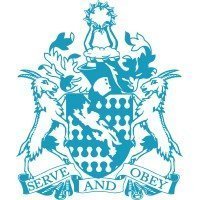Phuket Air Captain Has No Work Permit
-
Recently Browsing 0 members
- No registered users viewing this page.
-
Topics
-
Popular Contributors
-
Latest posts...
-
-
60
Report Foreign Earnings Taxed Under New Thai Rules - But With Exceptions
It seems even the experts are just as confused (per email from Expat Tax). The head of the Revenue Department needs to sit down, discuss with advisors, make an unambiguous decision, and publish it. We've had 21 months of ambiguity, panic, contradictory information from the Revenue Department staff in different offices, or even the same office, most completely untrained in the nuances of DTAs etc. This Thai Examiner article is certainly more detailed than the BP article, which made a confusing situation more confusing. The writer of that one may need to consider another career choice. But none the less, until an unambiguous decision is made (and enacted in law and published in the Royal Gazette), the result of uncertainty that has ensued is now all too visible to see, through the reduction of tax revenue by THB20 Billion. Until it is, that figure could certainly go northwards. -
45
Report Thailand Sees a Surge in COVID-19 Cases: Concerns for Public Health
I agree - Out of curiosity, did you return to your home country or relocate to a neighboring one? -
53
-
194
Even MAGA Is Up in Arms Over Trump’s ‘Flying Grift’ From Qatar
Qatar's Gift to Trump Is Unsold Plane It's Been Trying to Dump for Years Published May 15, 2025 at 6:07 AM EDT The jet, a lavishly configured version of Boeing's largest passenger aircraft, has been lingering without a buyer since being put up for sale in 2020, according to aircraft listings and aviation analysts. Despite its luxury interior, the plane has failed to find a buyer since being put on the market in 2020, according to a report from Forbes. John Goglia, a former member of the National Transportation Safety Board, told Forbes that giving the 747-8 to the U.S. would allow the Qataris to avoid maintenance costs that were only getting higher—with the 747 fleet shrinking worldwide and fewer mechanics available who know how to work on them. https://www.newsweek.com/qatar-gift-trump-unsold-plane-2072564 -
116
Economy Thailand Plans 10-Year Tourist Visa and 99-Year Land Lease to Boost Economy
You have to want to live in Vietnam.
-
-
Popular in The Pub
-



.thumb.jpg.3ee24d9400fb02605ea21bc13b1bf901.jpg)


.thumb.jpeg.d2d19a66404642fd9ff62d6262fd153e.jpeg)





Recommended Posts
Create an account or sign in to comment
You need to be a member in order to leave a comment
Create an account
Sign up for a new account in our community. It's easy!
Register a new accountSign in
Already have an account? Sign in here.
Sign In Now